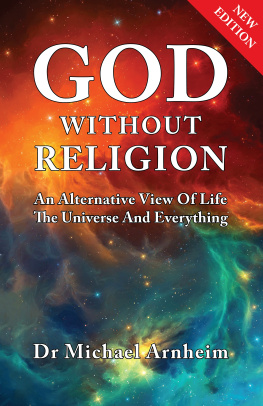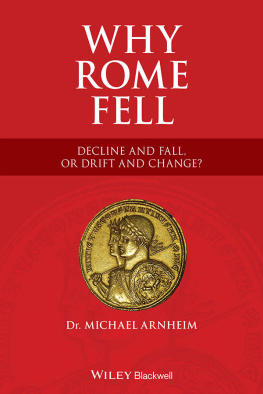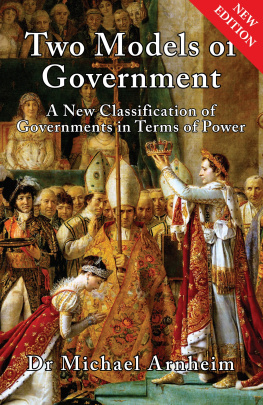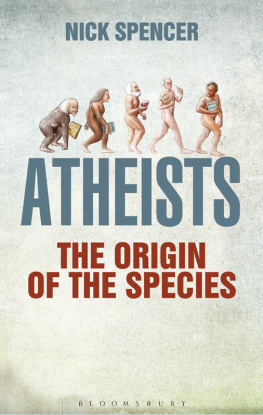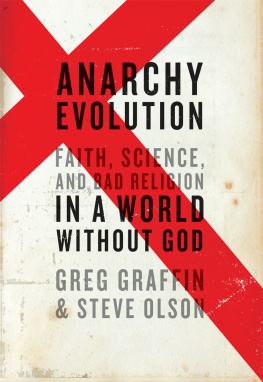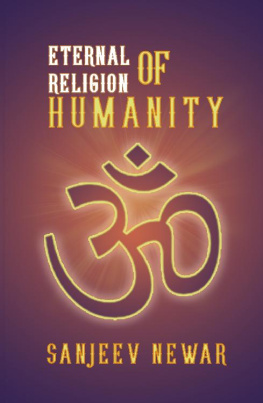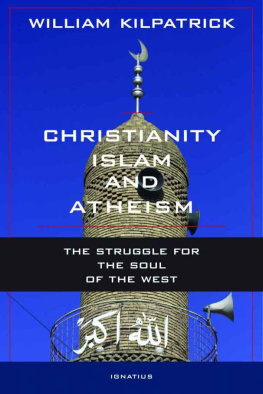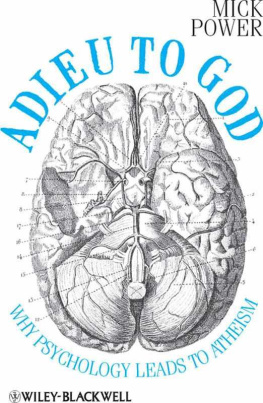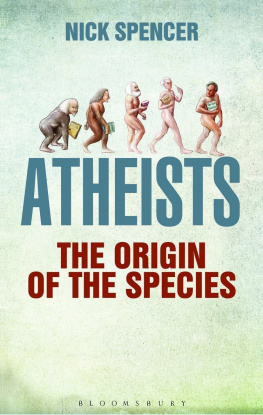God Without Religion
An Alternative View Of Life,
The Universe And Everything
by Dr Michael Arnheim
Sometime Fellow of St Johns College, Cambridge Barrister at Law
God Without Religion
An Alternative View Of Life, The Universe And Everything
by Dr Michael Arnheim
Copyright 2016 Michael Arnheim
Dr Michael Arnheim has asserted his moral right under the Copyright, Designs and Patents Act 1988 (as amended) to be identified as the author of this work.
1st Edition published by Imprint Academic
This 2nd Edition published by
Black House Publishing Ltd
All rights reserved. No part of this book may be reproduced in any form by any electronic or mechanical means including photocopying, recording, or information storage and retrieval without permission in writing from the author.
Black House Publishing Ltd
Kemp House, 152 City Road, London
UNITED KINGDOM
EC1V 2NX
www.blackhousepublishing.com
Email:
Table of Contents
PREFACE
T his book is a revised version of The God Book, published in 2015.
The book has had a long gestation period thirty years to be precise. It is in a sense a sequel to Is Christianity True? originally published in 1984, which was translated into a number of languages and created something of a stir.
Atheists reject religion, and with it a belief in any kind of God. In so doing, they are throwing the baby out with the bathwater. This book reveals the weaknesses of both atheism and of conventional organised religion without rejecting belief in God altogether. Hence the title God Without Religion. As far as I am aware, this is the first and only book to adopt that position.
Having studied Latin, Greek and Hebrew from an early age, I have been able to read the relevant sources written in those languages in the original. I have regrettably not been able to read the Quran (Koran) in its original Arabic, but there fortunately are internet sites containing a number of comparative translations of the Quran.
I am only sorry that my beloved mentor and colleague, Professor John Crook of St Johns College, Cambridge, has not lived to see this day. He was one of the most tolerant minds I have ever come across, but he never made the mistake of equating toleration with acceptance of all views as equally valid.
I owe a debt of gratitude to my friend Jack Ward, without whose constant badgering this book would probably still not be finished. Special thanks too to my portrait-painter friend Tony Oakshett for the photograph on the dustjacket of the hardback edition; and, for her painstaking proofreading, to my friend Rosie Craig.
As I dont have a cat, I cant blame it for clambering over the keyboard. The sole responsibility for any mistakes rests on me.
For biographical information on myself, see my Wikipedia entry:
https://en.wikipedia.org/wiki/Michael_Arnheim.
3 August 2016
Dr Michael Arnheim,
London
WHAT IS THIS BOOK ABOUT?
W hich is right, atheism or organised religion? Answer: Neither.
Whats wrong with atheism? The intolerant radical New Atheists of today champion the theory of evolution by natural selection, which may help to explain small changes and variations in living things but cant explain the origin of the universe or the origin of life because natural selection needs life to kick-start it into action. No life, no natural selection!
Does organised religion do any better? Not at all. It simply has too much baggage. Why does evil exist in the world? And why are the good not rewarded and the wicked punished? Organised religion has no answer except to kick these problems upstairs into the afterlife, of which there is no evidence whatsoever.
What then of the claims of religious truth? Most of the claims made for Jesus are demonstrably false. Creed religions like Christianity and Islam believe that they alone hold the key to truth and salvation. But communal religions like Hinduism, Japanese Shinto and the religions of the ancient world tend to be more tolerant. Orthodox Judaism, starting out as a communal religion, has now adopted certain features of a creed religion and become more intolerant.
But more tolerant than either radical atheism or any organised religion is deism. Unlike conventional religions, which are based on belief in a personal god, deism believes in an impersonal God who does not get involved in the day-to-day affairs of the world.
CHAPTER ONE
Let the Games Begin!
D ebates about God and religion are nothing new. But the current conflict between the New Atheists or Militant Atheists and organised religion certainly gives the impression of being more acrimonious than any similar disputes in the past. The rancour is less surprising than the generally unimpressive and unpersuasive arguments on both sides.
In this chapter I will critically trawl through some of the views of protagonists on both sides.
Some Leading Atheist Views
Christopher Hitchens
One of the most militant of the New Atheists was the late Christopher Hitchens, who died in 2011. Not content to rant against religious belief largely on the basis of self-aggrandising anecdotes masquerading as humour Hitchens went so far as to blame religion for all the ills of the world. One of the chapters of his book God is Not Great is titled simply Religion Kills, and a typical remark of his is that there is nothing in the Ten Commandments about genocide conveniently ignoring the sixth commandment, Thou shalt not kill, which obviously covers mass murder as well as individual killings.
Hitchenss all too familiar litany of likes and hates is essentially a nave politically correct version of the 19th century worship of Progress used as a stick with which to beat religion. Hitchens does not seem to have realised that his views were just as intolerant (and often also as intolerable) as those that he was attacking. He took it for granted that his values were more enlightened than those with which he disagreed, and he was as ready to impose them on his supposedly benighted targets as any Victorian missionary to darkest Africa.
Hitchenss Misunderstanding of Northern Ireland
So virulent was Hitchenss hatred of religion that the rationality of which he boasted was cast to the winds. A good example is his insistence on blaming the Northern Ireland conflict purely on religion, without bothering to try to understand the origin of that conflict.
Hitchens even managed to miss the point of the old Belfast joke about the man at the barricade during the Northern Ireland troubles. On approaching the barricade the man is asked whether hes a Catholic or a Protestant. Oh no, he replies, Im an atheist. For sure, for sure, comes the retort, but are you a Catholic atheist or a Protestant atheist? Hitchenss prissy comment is, I think this shows how the obsession has rotted even the legendary local sense of humor. Quite the reverse, I would suggest. The joke is an example of wry Irish humour, making the point that the Northern Ireland sectarian conflict was not essentially religious at all and that nobody in Northern Ireland could remain neutral, regardless of their religious affiliation. The joke uses the hypothetical example of an atheist, but it could easily have been a true story, and in fact Jews in Northern Ireland were always automatically classified as Protestants, simply because they tended to regard themselves as British rather than Irish and would therefore have been Unionists rather than Irish Republican Nationalists.

